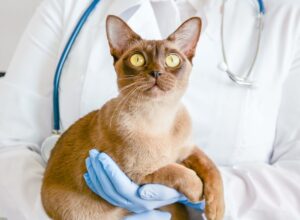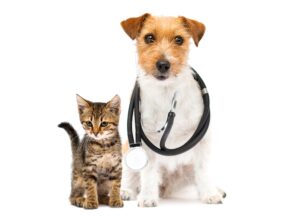Managing Endocrine Disorders in Pets: Expert Care at Animal Medical Center

When it comes to the health of our beloved pets, understanding and managing endocrine disorders is crucial. Endocrine disorders involve the glands that produce hormones, which regulate many vital functions in the body. When these glands do not function properly, it can lead to significant health issues for your pet. Animal Medical Center provides high-quality veterinary services to diagnose and manage these conditions, ensuring your pet remains healthy and happy.
Understanding Endocrine Disorders in Pets
Endocrine disorders occur when there is an imbalance in the hormones, which are important for regulating body functions such as metabolism, growth, and mood. In pets, as in humans, these imbalances can cause a variety of symptoms that can affect their overall well-being and quality of life. Common endocrine disorders in pets include the following:
Hypothyroidism in Dogs
Hypothyroidism is one of the most prevalent endocrine disorders in dogs, particularly affecting middle-aged canines. This condition arises when the thyroid gland in the neck fails to produce sufficient amounts of thyroid hormones, which play a critical role in regulating the body’s metabolism. The symptoms of hypothyroidism in dogs can vary but typically include weight gain without an increase in appetite, lethargy, and susceptibility to cold temperatures. Owners may also notice a dullness and thinning of the coat, skin infections, and a general decrease in vitality.
At Animal Medical Center, diagnosing hypothyroidism starts with a thorough clinical evaluation. This is followed by specific blood tests that measure thyroid hormone levels and assess overall thyroid function. If diagnosed, treatment often involves lifelong hormone replacement therapy. We tailor these treatments to each dog’s specific needs and adjust dosages according to regular monitoring of thyroid hormone levels to ensure optimal health. Our approach ensures that each pet not only regains its normal activity levels and metabolism but also enjoys a high quality of life.
Hyperthyroidism in Cats

Hyperthyroidism is the opposite of hypothyroidism and is common in older cats. It occurs when the thyroid gland produces too much thyroid hormone, leading to a significant increase in the body’s metabolism. Symptoms include weight loss despite a good appetite, increased activity and restlessness, aggressive or irritable behavior, and an unkempt appearance. Hyperthyroidism can also lead to more serious complications like hypertension and heart problems if left untreated.
At Animal Medical Center, our approach to diagnosing hyperthyroidism involves a combination of clinical examination and diagnostic tests. These include blood tests to measure thyroid hormone levels and advanced imaging techniques to visually assess the condition of the thyroid gland.
Treatment options vary depending on the severity and the specific needs of each cat. Treatments can include medication to control hormone production, dietary management with iodine-restricted food, and surgery or radioactive iodine therapy to remove or destroy the overactive thyroid tissue. Our comprehensive veterinary care aims to stabilize your cat’s hormone levels and prevent the progression of symptoms.
Cushing’s Disease in Pets
Cushing’s disease, or hyperadrenocorticism, is another complex endocrine disorder that primarily affects middle-aged to older dogs. This disease is characterized by the overproduction of cortisol, a vital steroid hormone that helps manage stress, weight, and immune responses. Common signs of Cushing’s disease include increased thirst and urination, increased appetite, a pot-bellied appearance, fatigue, and hair loss. If untreated, it can lead to serious conditions such as diabetes, infections, and pancreatitis.
Diagnosing Cushing’s disease involves a detailed assessment of clinical signs combined with laboratory tests like blood chemistry, urinalysis, and hormone testing. Imaging studies such as ultrasound may also be used to look at the adrenal glands and other internal organs. At Animal Medical Center, treatment may involve medications that regulate the production of cortisol or surgery to remove adrenal tumors if necessary. We provide ongoing monitoring to adjust treatment plans as needed, ensuring the best possible management of the condition.
In all cases, our goal at Animal Medical Center is not only to treat the immediate symptoms but also to manage any underlying issues and complications associated with these endocrine disorders. Through a combination of advanced diagnostics, customized treatment plans, and compassionate care, we strive to enhance and extend the lives of pets dealing with these complex conditions.
Diagnostic Tools and Innovations at Animal Medical Center
We are equipped with the latest in veterinary technology, including state-of-the-art diagnostic tools that allow for precise detection of hormonal imbalances. Our facility boasts advanced blood testing capabilities, ultrasound, and digital imaging systems that help us pinpoint the specific endocrine issue your pet may be facing.
Treatment Approaches for Endocrine Disorders
At Animal Medical Center, we understand that each pet is unique, which is why we create customized treatment plans for every animal. Depending on the disorder and its severity, we may recommend a combination of medication, diet adjustments, and even surgery. Our goal is to manage or eliminate symptoms and prevent complications, improving your pet’s life quality.
Preventive Measures and Wellness Checks
Prevention is key in managing endocrine disorders, which often develop slowly and can go unnoticed until they become serious. Regular check-ups are essential for early detection and effective management. We advise keeping your pet at a healthy weight, ensuring they get adequate exercise, and feeding them a balanced diet to help prevent these disorders.
Education and Support at Animal Medical Center

Understanding your pet’s health condition is crucial for managing any disorder. Animal Medical Center prides itself not only on the treatment but also on the education of pet owners. We provide resources and guidance to help you understand your pet’s condition, what to expect, and how to manage it at home. This support empowers you to take an active role in your pet’s health care.
Schedule an Appointment Today
Endocrine disorders, if left untreated, can severely impact the health and happiness of your pet. At Animal Medical Center, we are dedicated to providing high-quality, compassionate care for pets with these conditions. Our expert team is equipped with the knowledge, tools, and passion needed to diagnose, treat, and manage all types of endocrine disorders.
If you suspect your pet might be suffering from an endocrine disorder, or if you’re looking for expert guidance on managing an existing condition, don’t hesitate to contact us. Reach out to Animal Medical Center today to schedule a consultation or visit our website for more information on our full range of veterinary services. Let us help you provide the best care for your pet’s specific needs.
